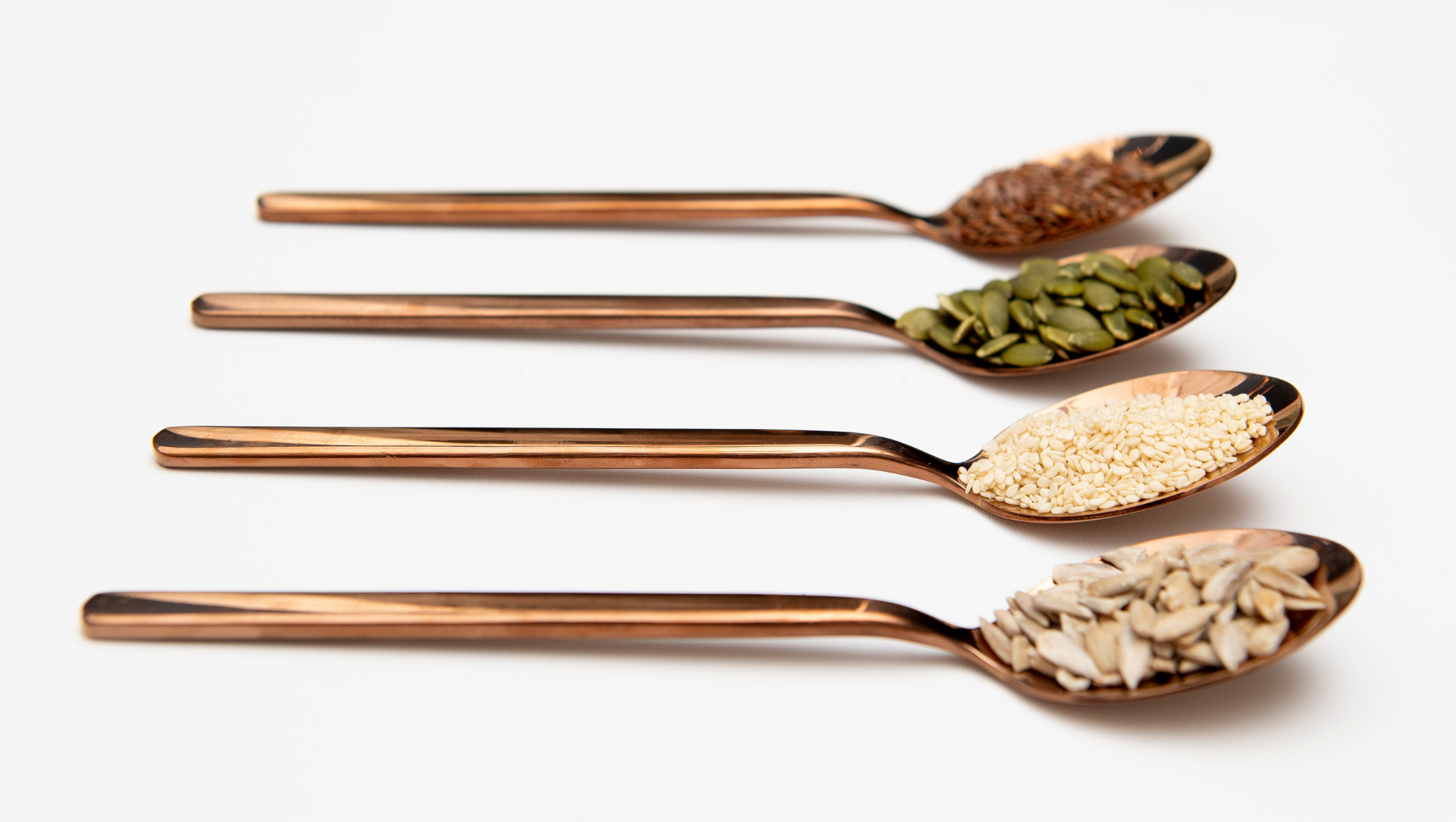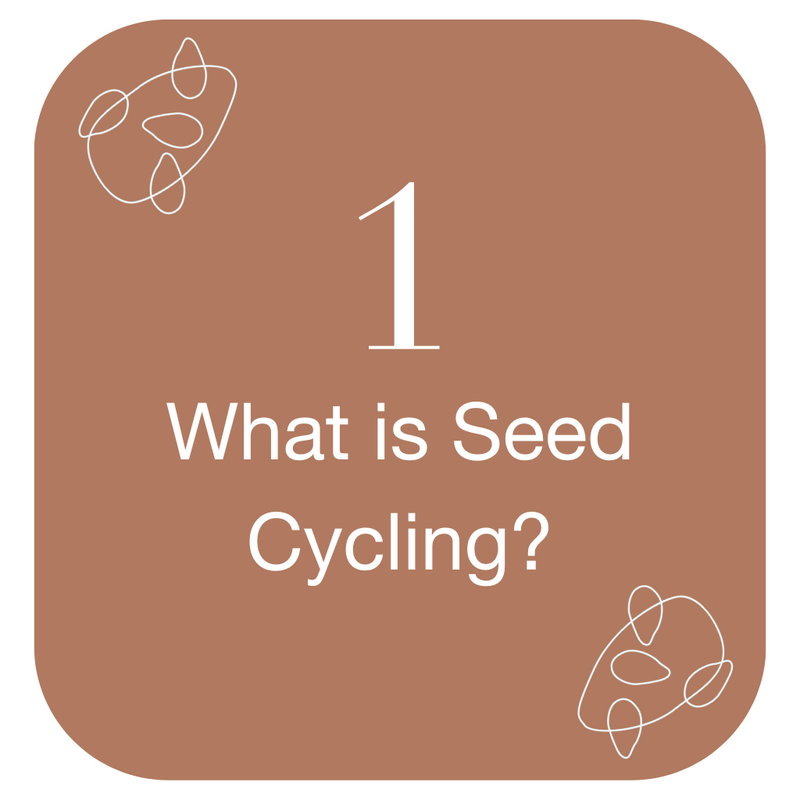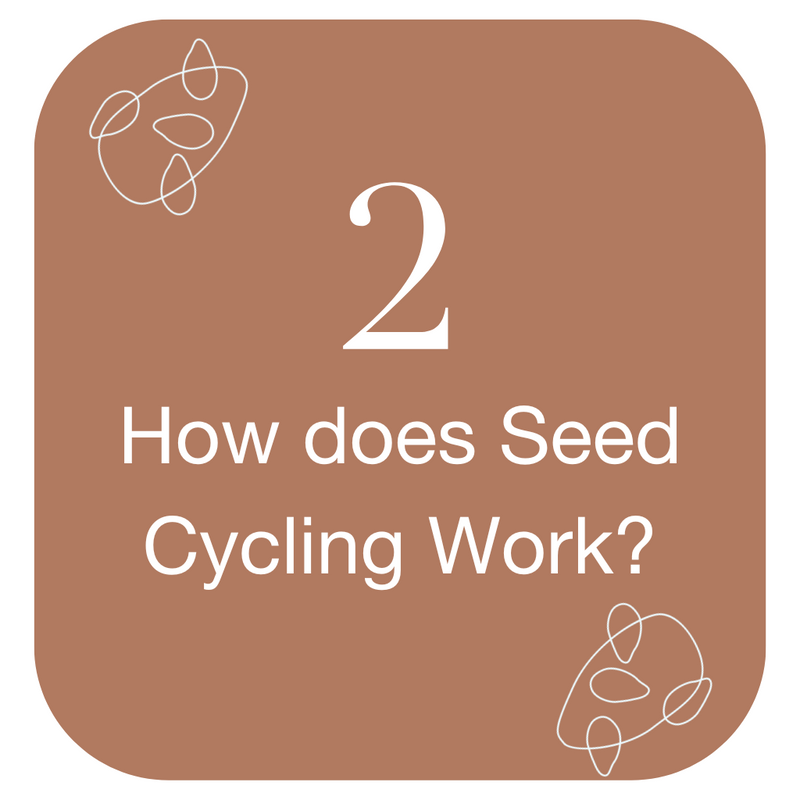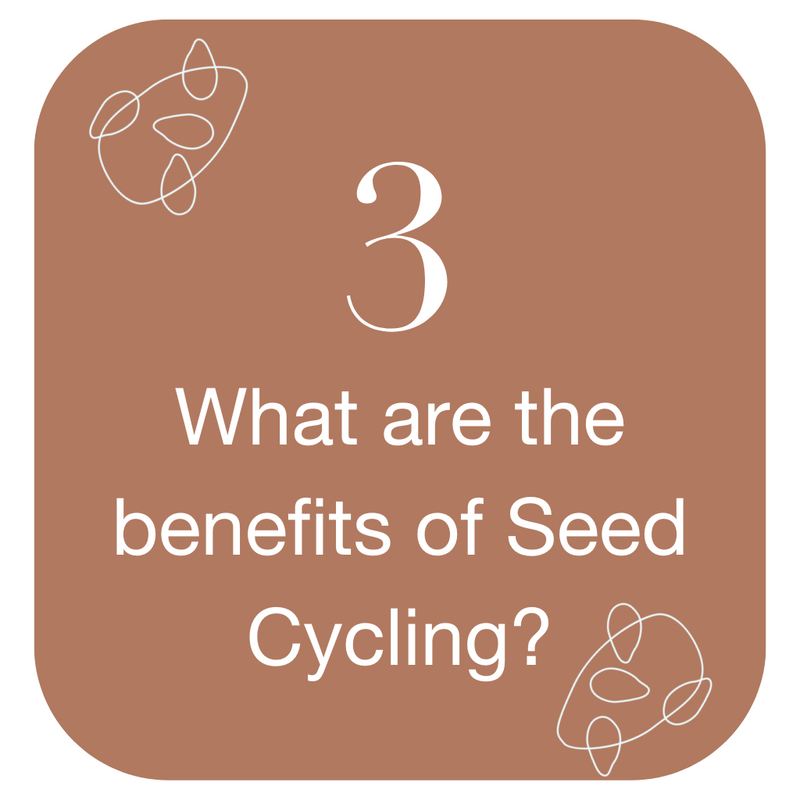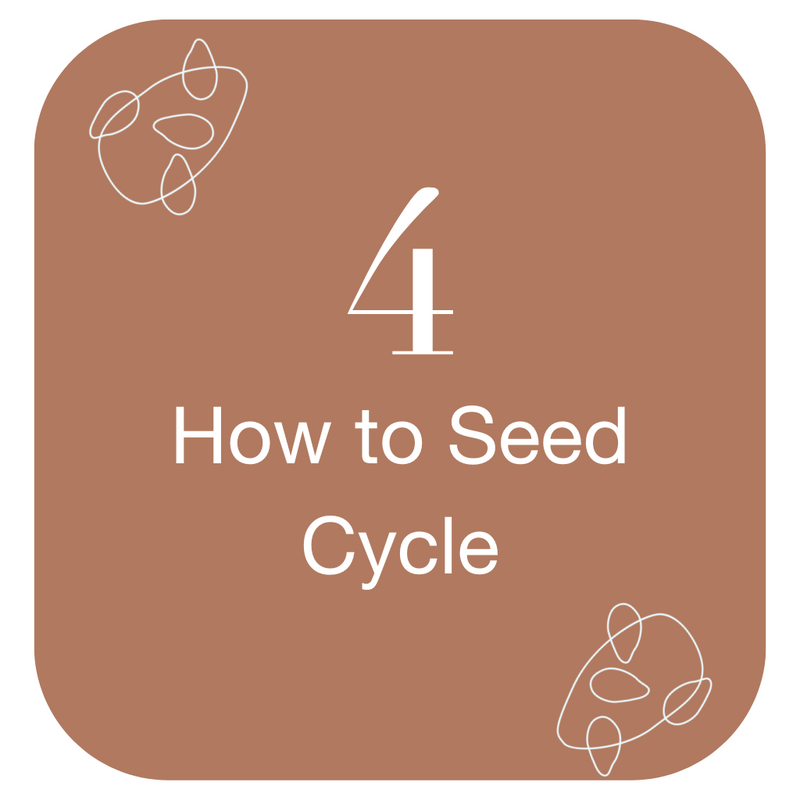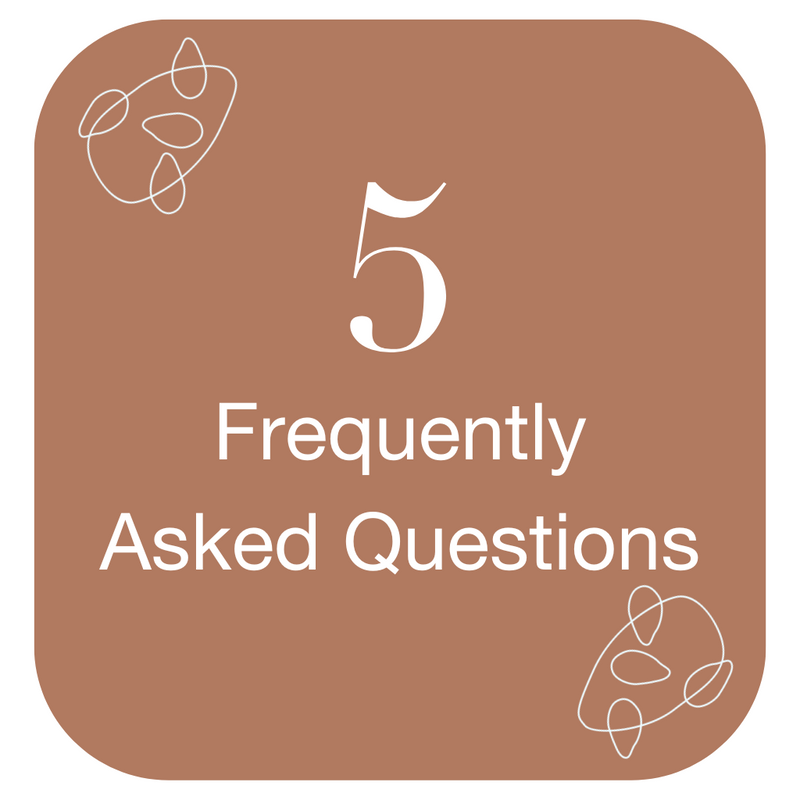The Nutritional Insights Behind Seed Cycling
At The Seed Cycle, we believe in food-first approaches to wellness. Seed cycling is a traditional dietary practice that focuses on rotating specific seeds—flax, pumpkin, sesame, and sunflower—during different phases of the menstrual cycle to support nutrient intake. While this practice is gaining popularity, scientific research is still emerging.
This page offers a summary of existing nutritional research, early-stage studies, and traditional insights. While some preliminary findings are promising, we aim to present this content as educational rather than prescriptive.
What Is Seed Cycling?
Seed cycling involves consuming ground flax and pumpkin seeds during the follicular phase (days 1–14 of the menstrual cycle) and sesame and sunflower seeds during the luteal phase (days 15–28). It’s a naturopathic nutrition strategy designed to deliver key micronutrients at specific times of the cycle.
While no health claims are made, individuals and practitioners have adopted this approach as a food-based wellness ritual. Below, we explore nutrient profiles of the seeds and summarise related studies.
Nutritional Highlights of Each Seed
Flaxseed
- Rich in lignans (a phytoestrogen) and alpha-linolenic acid (ALA), an omega-3.
- Studied for potential antioxidant and endocrine-modulating effects.
- Contains soluble fiber supporting digestive health.
Pumpkin Seeds
- High in magnesium, iron, and zinc.
- Contains phytosterols and antioxidants.
Sesame Seeds
- Contains sesamin and sesamol—natural lignans with antioxidant potential.
- Good source of iron, copper, and calcium.
Sunflower Seeds
- Rich in vitamin E and selenium.
- Provides polyunsaturated fats and fiber.
Emerging Research on Seed Cycling Protocols
While traditional use has driven much of seed cycling’s popularity, scientific interest is growing. Recent exploratory studies have examined how seed cycling may relate to hormonal symptoms and cycle health.
Recent exploratory research examined how a blend of nutrient-rich seeds—pumpkin, sunflower, sesame, and flaxseed—may support hormone-related functions in women with Polycystic Ovary Syndrome (PCOS). The study observed that incorporating these seeds into a balanced diet was associated with improvements in several areas, including menstrual regularity and hormonal markers.
While the study was not conducted in Australia and is not yet considered conclusive clinical evidence, it adds to a growing body of interest in food-based practices and nutritional support for women’s health. The nutrients naturally found in these seeds—such as omega-3 fatty acids, zinc, selenium, and lignans—are commonly included in wellness approaches aiming to support hormonal balance and metabolic health.
2023 Human Study on Seed Cycling & PCOS
A pilot open-label intervention with 32 women diagnosed with PCOS showed that consuming seed blends (10g flax, pumpkin, sesame, and sunflower daily) over three months was associated with improvements in BMI, menstrual regularity, and hirsutism.
Ramakrishnan et al. (2023). Seed Cycling for Polycystic Ovary Syndrome.
Read Study (preprint)
Note: This was a preliminary, non-peer-reviewed study with a small sample size.
Seed Cycling Clinical Study (2023)
Citruslabs conducted a 12-week product-use study with 40 participants using a seed cycling protocol. Outcomes included reported improvements in menstrual cramps, mood, and hormonal imbalance symptoms.
Note: This was a single-arm study without a placebo or control group.
2024 Randomized Controlled Trial: Metformin vs. Seed Cycling
In a 2024 RCT, 290 women with PCOS were randomized into two groups: one followed a portion-controlled diet with Metformin (500mg/day); the other combined diet with a structured seed cycling plan. The seed cycling group showed significant reductions in FSH, LH, prolactin, and testosterone.
Integrative Medicine Reports, 2024.
Note: While results are encouraging, more independent replications are needed.
Expert Insights on Seed Cycling
“We use seed cycling as a natural technique to stimulate and balance sex hormones through the month.” – The Natural Nutritionist, 2023Summary
Seed cycling is a functional nutrition approach centered on real foods. While traditional use and early research show promising areas of interest, it is not a replacement for medical treatment. These studies provide preliminary data, but larger, peer-reviewed trials are necessary to validate any clinical outcomes.
Disclaimer
The Seed Cycle provides nutritional products and educational content only. The information on this page is not intended to diagnose, treat, or cure any condition and should not replace medical advice. Always consult your healthcare provider before starting any new wellness routine.
References
Thompson, L. U., et al. (1993). Flaxseed and menstrual cycle characteristics. J Clin Endocrinol Metab, 77(5), 1215–1219.
Prasad, A. S. (2008). Zinc in human health. Mol Med, 14(5–6), 353–357.
Hirose, N. et al. (1991). Sesamin and lignans in lipid metabolism. J Nutr Sci Vitaminol, 37(3), 217–225.
Rayman, M. P. (2000). Selenium and human health. Lancet, 356(9225), 233–241.
Ramakrishnan, M., et al. (2023). Seed Cycling for PCOS. ResearchSquare (Preprint).
Latha, R. & Jayalakshmi, G. (2024). Nutritional Management of PCOS: Role of Seed Cycling. Integrative Medicine Reports.
Citruslabs & Beeya Wellness (2023). Beeya Clinical Study Report.
If you’ve found a study we haven’t included, we’d love to hear about it. Email us at hello@theseedcycle.com.au.
Additional Reading for Menstrual Cycle and Hormone Health
Seed Cycling for Hormone Balance by Dr. Jolene Brighten
Beyond the Pill by Dr. Jolene Brighten
Menstruation: The Sacred Cycle: Redefining our menstrual cycle and PMS by Gina Cloud
Period Power: Harness Your Hormones and Get Your Cycle Book by Maisie Hill
Period Queen: Life hack your cycle and own your power all month long Book by Lucy Peach
Women’s Bodies, Women’s Wisdom, the classic guide to living well in a woman’s body by Christiane Northrup MD
Beautiful Girl: Celebrating the Wonders of Your Body, a guide for girls on the power and beauty of becoming a women by Christiane Northrup, MD
The Ecology of Estrogen in the Female Body, superb and in-depth article by herbalist Juliet Blankespoor

